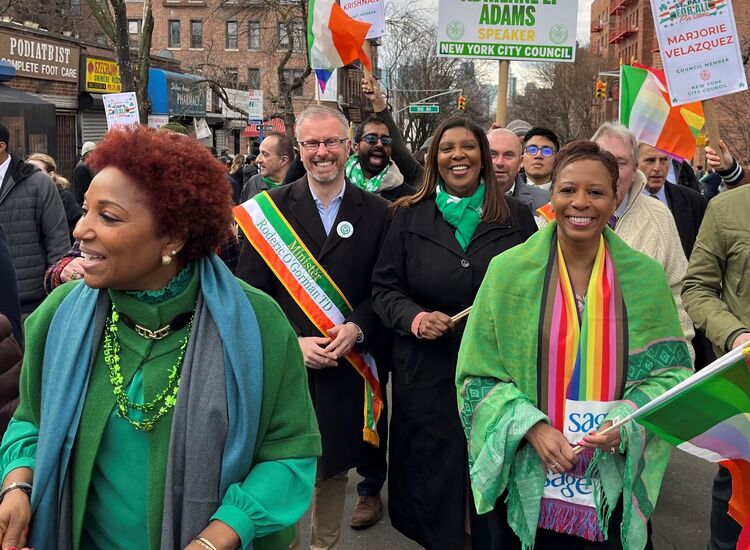Is a job, any job, preferable to the dole?
For most people, the question probably is a no-brainer. Of course it's better to be working than to be out of work and collecting government benefits.
But for the millions of people who have lost their jobs in the global economic downturn since 2008, the question of any job versus the dole is not just an academic exercise. It's a matter of dollars and cents.
That's especially true for adults with dependent children. When you have mouths to feed, you don't have time for abstract issues. You have bills to pay, and if the dole pays better than a low-level job with all its other costs (transport, child care), well, the answer is pretty darn obvious.
This question received a very public airing in Ireland recently when the Economic and Social Research Institute released, and then withdrew, a research paper which suggested that 44 percent of the Republic's parents would be better off on the dole than on the job. Amid a public outcry, including a demand by Sinn Féin that the paper be withdrawn, the ESRI announced that the report still was a work in progress and would require a "major revision."
I'm not an expert in math, as my several creditors will attest, but the figures in the withdrawn report certainly seemed eye-opening. The authors contended that a person with a job had five times as many daily expenses as a person without a job because of costs associated with commuting, child care, food, and clothing.
Perhaps the calculations are, in fact, flawed. But the report may prove useful in framing a debate about job creation and the creation of greater incentives to work.
For example, could government policy help ease the burden of some costs, especially commuting and child care, to make it easier for parents to get a job rather than rely on the dole?
What's more, the report implicitly raises the issue of the intrinsic importance of work. Is a job simply a matter of dollars and cents, or does holding a job - any job - bring intangible benefits to individuals and families?
Observers from Daniel Patrick Moynihan to Dr. Martin Luther King Jr. to Pope John Paul II have spoken eloquently about the value and dignity of labor.
In his unjustly forgotten encyclical Laborem Exercens (On Human Work), John Paul wrote: "Work itself can have greater or lesser objective value, but all work should be judged by the measure of dignity given to the person who carries it out."
The late Senator Moynihan, speaking with me a quarter century ago, spoke with great disdain about those who, he said, urged the poor to stay at home and collect benefits rather than drive a cab or haul trash. Any job, Moynihan argued, was better than no job.
It is hard to argue with that assertion, except, of course, if you're confronted with a precarious bottom line. If staying at home and collecting benefits makes it easier to put food on the table for your children, well, all the talk about the dignity of work seems beside the point, no?
Here's the real question: Why aren't we creating better-paying jobs for people who don't have college degrees, who may have made a few wrong turns in life, who may not have the ability or the interest to create new financial schemes or computer programs or advertising campaigns?
In other words, why is it that for some people the dole is a better option than a job? Even if the ESRI data are flawed, it certainly would seem that for some in Ireland, and no doubt for some in the United States, minimum-wage jobs truly can be a money-losing proposition when other costs are factored into the family budget.
Conservatives and libertarians might argue that the solution is to reduce benefits, which would force the jobless to get back into the labor force.
Liberals and progressives would counter that social welfare benefits ought to be extended, especially in hard times.
Neither of these positions deals with the larger issue of job creation, especially the creation of jobs which allow workers "to live a truly human life and to fulfill their family obligations in a worthy manner," in the words of John Paul II.
Sinn Féin's spokesman for social protection, Aengus O Snodaigh, did try to take the debate to this higher, broader level, asserting that decision-makers in Ireland should be "creating jobs and making work pay." Instead, O Snodaigh said, too many people seem eager to "beat social
welfare dependents whose morale and situation are at an all-time low."
Public commentary aside, the jobless in Ireland and in the U.S. are not living large at taxpayer expense. I know people who are out of work. I know young people who have moved back with their parents, and middle-aged people who have exhausted retirement savings after going three or four years without a paycheck.
Governments need to figure out how to make work pay, as O Snodaigh said. It's no longer enough to urge parents to take a job for the sake of having a job. Because sometimes the job just doesn't pay.










